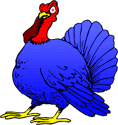|
Himmler posted:A shame to see such a great and useful thread get left behind I'm absolutely brand-spanking new to the world of music at the ripe old age of 25 and fancied giving the piano a bash. I'm pretty serious about wanting to plough through the grades and to become "classically trained", but I need something for home which is fairly budget yet won't hinder me too much when it comes to playing on the real thing. Enter, the Yamaha DGX-620 (I believe it's the YPG-625 outside Europe, correct me if I'm wrong). Now, according to reviews and user opinion this is as close to a grand piano key set as you'll find on a portable, which is exactly what I'm looking for. The question is, should I go with this and spend the extra for all the gubbins it has, or is there another keyboard out there with 88 fully-weighted keys (to the 620's standard) which is a back to basics piano replica without 500,000 voices or super synth recording, saving notes through USB etc? Really what I want is a piano, only without the cost, size and relentless noise. Go, go Piano Thread Answer Machine!
|
|
|
|

|
| # ? Apr 18, 2024 02:31 |
|
As far as I've heard it's pretty good and the cheapest alternative with quality and full set of weighted keys, it also has an LCD screen which shows what notes you play which could probably be very useful. Also, it looks far more impressive in real life as opposed to when you just see a picture.
|
|
|
|
Whoever said it on the end of the last page, this is indeed too interesting a thread to die, and I hope some more people in my boat join in. Since I last posted I haven't done much more, just still doing over the scales, trying to memorise them and play them well. I've decided to try learning three songs in October. One will be Fur Elise, another will be the Mario Theme Tune, any suggestions for another one, and possibly where to find the sheet music? I'm still awful with my left hand Fat Turkey fucked around with this message at 21:17 on Oct 5, 2007 |
|
|
|
If you really wanna go for it, try learning the Turkish March. It's a pretty fast song, but drat you'll be proud to play it.
|
|
|
|
I'm new at piano, and thanks to my flatmate, now have an electric 88-key piano in my room. (with hammer-action or whatever it's called - what makes it have dynamics and harder to push on) My short term goal is to be able to sight-read, practice scales/arpeggios, learn chords, and learn some pop songs. My medium term goal is to play Erik Satie pieces, and some cuban jazz type stuff. My long term goal is Chopin's Ballade n°1 in Gm, and other crazy Scriabin/Ligeti type stuff. Considering that my flatmate took lessons for 10 years, would buying a book and having him correct my mistakes be good ? Or does it take somebody even more experienced, ie. a professional teacher to correct them. I'm a student, so frequent lessons are not a possibility, but infrequent ones are. Finally, is "Alfred's Basic Adult Piano Course: Lesson Book Level 1" the best book for me to get ?
|
|
|
|
Another piano newbie chiming in. I just ordered a DGX-620 and have an instructor standing by. I'm really excited to get learning.  Thanks for all the info in this thread, it's been helpful. Thanks for all the info in this thread, it's been helpful.
|
|
|
|
I tried getting into it. I was learning theory, reading sheet music (slow as molasses), etc. I about gave up and then I started trying to play the song that made me want to play piano...Avril 14th. Now I gotta find a new song and some new passion. Music, in general, is becoming meaningless to me as of late. I just need some new stuff to do in life, in general, and then I'll get back to learning (relearning by this point) piano. To anyone trying to understand theory, for the love of God, start with piano. Piano is beautiful because it's so simply laid out (the notes, the octaves, etc.) and the learning curve actually exists...it's not like instruments like guitar where you literally just hit massive 90 degree brick walls. You ALWAYS feel like you're getting better at piano...
|
|
|
|
An0 posted:Considering that my flatmate took lessons for 10 years, would buying a book and having him correct my mistakes be good ? Or does it take somebody even more experienced, ie. a professional teacher to correct them. I'm a student, so frequent lessons are not a possibility, but infrequent ones are. He should be able to correct you for the earlier stuff, but nothings better than getting a teacher. Can't help you on the book though, I can only tell you I only needed a chord book.
|
|
|
|
Himmler posted:A shame to see such a great and useful thread get left behind, if anyone is finding it hard to find sheet music then register here http://www.pianosheets.org/ Not sure if that's 'files' or not. But I use this site and recommend it.  A recommendation for the nublets, I'm sure you've all heard it by now. "Hey that Halo piano song is pretty neat!" Yeah, that would be Chopin's Raindrop Prelude cutie  It's a really easy, straight forward and one of the most emotional pieces I've heard that don't require amazing virtuoso talent. It's a really easy, straight forward and one of the most emotional pieces I've heard that don't require amazing virtuoso talent.
|
|
|
|
An0 posted:I'm new at piano, and thanks to my flatmate, now have an electric 88-key piano in my room. (with hammer-action or whatever it's called - what makes it have dynamics and harder to push on) I haven't checked out the book you mentioned myself but it sounds about right. After you plow through a couple beginner books start the RCM books  . Probably good to skip to Grade 2. . Probably good to skip to Grade 2.Really you need to ask him that, I've met some people that have played an instrument all their live and know next to nothing about it =/. There are the obvious advantages to having a teacher but having someone that knows what they are talking about can help a lot too. 
|
|
|
|
Fat Turkey posted:Whoever said it on the end of the last page, this is indeed too interesting a thread to die, and I hope some more people in my boat join in. I'd go with any of these: Beethoven's Moonlight Sonata 1st movement Chopin's Prelude in E minor 28.4 Chopin's Raindrop Prelude [edit] Yeah... Triple posts are cool... (Sorry)
|
|
|
|
Thanks Alizee. I think I'll sling Moonlight Sonata on there as I know and love it already. I've not seen any trailers for Halo so don't know the Copin piece, but I'll possibly give that a try, four to learn. Is it better, worse, or no different to already know how the piece goes before you start playing? Lastly, can you tell me more about grades, what each is and how different they are from eachother. I know next to nothing other than they rank piano skill. Goon krisis linked this in another thread, but I think it is a fantastic guide to music theory
|
|
|
|
Apparently you're learning Fur Elise, that is a grade 7 piece. The problem though is you really can't just start out in grade 7 just because you can throw down Fur Elise with some hard work. You'll have bad technique and bad habits in both playing and learning. I'm not yet a teacher myself so I can't go too far into the specifics of why it's a bad idea, but... I'm pretty sure it is. However, if you feel that you just want to learn on your own. You might as well just go from Grade 6 or 7 and work your way from here, this is how it goes. Grade 1 - Beginner Grade 7 - Intermediete Grade 9 - Fairly Accomplished Grade 10 - Final Grade, becoming Virtuoso ARCT - You can now teach anyone and you're really drat good. If you'd like to find out a lot about all the specifics as to what's required, theory wise, technique wise and pieces wise you should look into buying the Syllabus. It has everything that you would want to know about the grades in it. Each grade is an improvement from the last but personally looking back I think I could have skipped a few more grades. Not sure however if I would have lost technique along the way. Sorry, I can't clarify things better, but it's late I'm tired and I don't know the entirety of this :P
|
|
|
|
I'm considering buying myself a keyboard for myself again. I played when I was young, went into band and played brass for awhile as well. I really liked the piano better. I was wondering how heavy is too heavy for weighted keys? Is there such a thing?
|
|
|
|
Alizee posted:Apparently you're learning Fur Elise, that is a grade 7 piece. The problem though is you really can't just start out in grade 7 just because you can throw down Fur Elise with some hard work. You'll have bad technique and bad habits in both playing and learning. I'm not yet a teacher myself so I can't go too far into the specifics of why it's a bad idea, but... I'm pretty sure it is. I thought in an earlier post you mentioned to try out Fur Elise, but looking back you don't, you just mention it is a Grade 7 piece. I don't mind scrubbing that out, I would just like to know some songs to start off with that are both satisfying and challenging.
|
|
|
|
nomad2020 posted:I'm considering buying myself a keyboard for myself again. I played when I was young, went into band and played brass for awhile as well. I really liked the piano better. I was wondering how heavy is too heavy for weighted keys? Is there such a thing? Go to a music store, try out a few real pianos (preferably grands to uprights) then go try to find a comparible key in a keyboard. My keyboard weighs 63 pounds (Korg Triton Extreme 88 key).
|
|
|
|
Fat Turkey posted:I thought in an earlier post you mentioned to try out Fur Elise, but looking back you don't, you just mention it is a Grade 7 piece. I don't mind scrubbing that out, I would just like to know some songs to start off with that are both satisfying and challenging. That is a challenge in itself. Just try some things out dude, try out like... Mad World or something to that nature. Fur Elise although a Grade 7 piece isn't so for technical ability. At least not the A and C section. There are like 8 measures after the main melody that requires some technical ability but if you're just wanting to see what you can do you might as well give it a try. If you find that too hard, I can look through my RCM books and try to find some interesting pieces in lower grades  Note: The reason why I'm not necessarily saying to start out at the Grade 1 level and work your way up religiously with the books though is because I myself see some of the requirements in technique and knowledge to be minute at best. So the way I look at it, if you're not going to have a teacher you might as well just see what you can play at and go with it!
|
|
|
|
Fat Turkey, I recommend this to everybody, but you may be interested in playing Bartok's "Mikrokosmos" if you looking for something more unusual. It's a 6 volume set designed to guide the performer through beginner to intermediate states. It will address many of issues that most piano players go through when they're first starting out, and unlike a lot of exercise books, they're actually very musically interesting. It's part of the reason why I play music today.  Bartok works with modes rather than major/minor scales, though, so something to keep in mind. You may find some weird things (like non-standard key signatures) but the instructions are very clear so it shouldn't be too confusing. If you want a left-hand workout, by the way, try to play some Bach inventions. It's part of the reason why he wrote it to begin with.
|
|
|
|
Lethardio: I'm interested in what you suggested, but him straying from majors/minors (what I've been learning) and doing something else I don't know of is a bit daunting. --- Regarding the left hand issue, when learning a piece, is it better to learn the left and right hand parts at the same time, even if it is slower and more clumsy, or to learn the left and right bits seperately and then try and play them together? Got some pieces that are basically arpeggios on the left hand and a simple melody on the right which seperately I can play but together because a slow mess.
|
|
|
|
Fat Turkey posted:Regarding the left hand issue, when learning a piece, is it better to learn the left and right hand parts at the same time, even if it is slower and more clumsy, or to learn the left and right bits seperately and then try and play them together? Got some pieces that are basically arpeggios on the left hand and a simple melody on the right which seperately I can play but together because a slow mess. For me, when I start to learn a new piece I always practice hands separately first and get somewhat fluent with the fingerings before putting them together. Expect it to be a slow mess at first when you play hands together, it takes time and practice to get acquainted. And when you start becoming comfortable playing the section hands together, increase the speed bit by bit while putting in more dynamics and interpretation.
|
|
|
|
 I have been working on this song and got confused with the notation. At the start of the line it explains which lines are sharp for the bass clef but on the same line it switches to the treble then back to the bass without indicating new sharps for the lines. Does that mean that the lines remain sharp regardless of the switch between bass/treble or that it it resets with the new notation?
|
|
|
|
trimpton posted:
Yup, the C,D,F,G sharps still apply even when they change the clefs.
|
|
|
|
Lamb Virtuoso posted:Yup, the C,D,F,G sharps still apply even when they change the clefs. Does that mean the C,D,F,G sharps apply to all corresponding notes in the staff regardless if they are on the lines with the sharps or do it only mean the lines they land on are sharp? Thanks for the help.
|
|
|
|
The key signature is still the same key signature always unless otherwise noted by an accidental or change in key  So yes the E+ or c#- key remains 
|
|
|
|
Good to see the thread reanimated.  I took the plunge and, this week, had my first piano lesson (as well as picking up a Yamaha DGX-620). After a couple of days I've finally managed to make the fingers on my left hand move independently and can now play the C Major Scale with both hands, hurrah! An insignificantly minor breakthrough, but one which felt like black magic at first and continues to amuse. Keep up the good work, Piano-men (and women)!
|
|
|
|
trimpton posted:Does that mean the C,D,F,G sharps apply to all corresponding notes in the staff regardless if they are on the lines with the sharps or do it only mean the lines they land on are sharp? Thanks for the help. I'm still confused by this - so I figured I would make a picture to help illustrate my confusion.  So does the key signature only apply to the F on the F line with the sharp or does that mean all F's on the staff including the one at the bottom (If there was a note there)?
|
|
|
|
trimpton posted:So does the key signature only apply to the F on the F line with the sharp or does that mean all F's on the staff including the one at the bottom (If there was a note there)? The latter. It applies to all notes by that name.
|
|
|
|
I picked up a 61 key Yamaha the other week just so I could start learning to read and play sheet music... How limiting is a 61 key keyboard as opposed to an 88 key keyboard? I assume there are enough keys to get started but I see a lot of people really stressing 88 keys as a must have... so now I'm starting to wonder.
|
|
|
|
trimpton posted:I'm still confused by this - so I figured I would make a picture to help illustrate my confusion. All F's on that staff. However, if an F# below middle C is lowered to natural form, a sharp above middle C on the same clef is not effected. In addition all accidentals (Double Sharps, Sharps, Flats, Double Flats, Naturals) that are not indicated in the key signature are canceled out at the end of the bar. Archr5 posted:I picked up a 61 key Yamaha the other week just so I could start learning to read and play sheet music... You might regret it in the long run but standardly the majority of stuff that you'll learn for the first while you will be able to hopefully play on 61 keys. It also depends completely on what style you are learning. Classical music will cause more problems then say pop music in terms of keyboard size.
|
|
|
|
I used to play piano as a kid.. (like 15 years ago) and was decent, I guess. I stopped playing for a long time, and just started playing again. Got a decent keyboard and started learning some old pieces that I knew and some new material. Had a question about the damper pedal. A) I don't remember the sheet music notation for it, if there is one. I've just been keeping it pressed most of the time except during chord changes or stacatto sections, but that doesn't seem right to me. However, when I play without using it the notes just don't seem to carry right. Should I not be using the damper pedal at all except for marked sections, and just learn to hold notes better, or is what I'm doing correct?
|
|
|
|
Sandeep posted:Had a question about the damper pedal. A) I don't remember the sheet music notation for it, if there is one. I've just been keeping it pressed most of the time except during chord changes or stacatto sections, but that doesn't seem right to me. However, when I play without using it the notes just don't seem to carry right. Should I not be using the damper pedal at all except for marked sections, and just learn to hold notes better, or is what I'm doing correct? Well it depends on the style of the piece (period of which it is written). For example, for a Baroque piece, you generally should not use the pedal unless indicated. For a Romantic piece however, it is common practice to use the pedal even when the composer did not show it (sometimes they will show it at the very beginning and omit it afterwards), but this does not mean you should use it for the whole piece. Often times there will be a section where the composer changes the mood or style and you would not use it. A Classical piece lies somewhere in between, and this greatly depends on the composer. Take Mozart for example, you would use the pedal minimally, and in a piece by Beethoven you would notice a more frequent usage. The pedal does allow you to legato much better, but you should not rely on it. An important part of legato is correct fingering. It would be better if you post the name of the piece and composer for us to tell you if it's right or wrong.
|
|
|
|
Lamb Virtuoso posted:The pedal does allow you to legato much better, but you should not rely on it. An important part of legato is correct fingering. It would be better if you post the name of the piece and composer for us to tell you if it's right or wrong. The pieces I've been playing are Fur Elise and Moonlight Sonata.. both of which I seem to be using the pedal the majority of the time. (well not in the second movement of fur elise). In Moonlight Sonata I let off and on whenever the arpeggio changes. I've also been learning some pop junk like Brick by Ben Folds Five, which I have the pedal down for most measures except the bridge.
|
|
|
|
When I was first learning I'd whore the pedal. I'd just hit the pedal and let go of the chord I was playing so I could have more time to find the next notes :p. But yeah, what sandeep said, basically varies with the style of the piece.
|
|
|
|
Ok so its always been a dream of mine to play the piano. I live in a small apartment so a real piano is out of the cards. I picked up a cheap $20 keyboard at a thrift store, but it isnt cutting it (and I broke a key dont ask how). Now I really dont have alot of money so I was looking to pick up a new keyboard somewhere. I was looking at a few casio's around the $200 pricepoint primarily these two http://www.axemusic.com/product.asp?numRecordPosition=9&P_ID=10272&PT_ID=123 http://www.axemusic.com/product.asp?numRecordPosition=10&P_ID=16214&PT_ID=123 I would like a much better one, but I really shouldnt even be spending the money I want to now. I would do the thrift shop/pawn shop type route but I dont even know what to look for so its kind of pointless. Now after reading this thread, is it even worth spending the $200 ? I know im not going to be recording any music with these things but I just want to get started.
|
|
|
|
This thread needs to be kept alive by updates from budding pianists!Cragz posted:Good to see the thread reanimated. Argh, you've summed up the area I need help. I've been studying, making notes and testing myself on music theory from the dolmetsch theory site I posted earlier and i'm really happy with it. It's the practice that I'm finding difficult, and the quoted section sums up how someone else got the hang of it. so how did you do it? My big proble is the left hand. My right hand can quite happily play the melody line, and whe I'm practicing can pull off a lot of (to me) the more challenging chords like Bb, Bm, and of the 7s or whatever. However I cannot mimic this with my left hand, it just isn't the right shape. Bm feel natural to play with the right hand but is twisted awkwardly on the left hand. I can't play any chords or arpeggios that involve four fingers on my left hand. Does anyone have any exercises or tips to improving it beyond trial-and-error hard practice? I think this is the thing really holding me back, as the right hand seems fine (although I feel I may be picking up some bad habits, will have to see a piano teacher soon). Edit: Oh and something that should probably really obvious, should I be hitting standard three finger chords with 1 2 3 or 1 3 5? Fat Turkey fucked around with this message at 21:32 on Nov 8, 2007 |
|
|
|
I took less than a year of piano way back when I was a kid and got bored then, regretting it now. Instead I went on and played trombone for a good 8 years or so, ended up playing a lot of jazz, so improv is not a big deal. In my adult life, I enjoy writing/producing music, mainly electronic and stuff, but I find a sticking point is intuitively being able to come up with chords and chord progressions. Since the trombone is monophonic I didn't have to worry about coming up with chords. So I figured maybe I should try to take up piano again. Any ideas on how I should approach this? I'm not terribly interested in the performance aspect. The jazz book mentioned in the thread looks good. It's not that I can't come up with chords and chord progressions by ear, it's just that the process is pretty trial-and-error. I just want to get that intuition!
|
|
|
|
I was wondering what the proper fingering for a 7th chord? I've been using 1345 cause it seems the most comfortable.
|
|
|
|
To answer FatTurkey and Tek's questions. For standard three note chords 1-3-5 is the way to go. For dominants and diminished chords however you can be a bit more liberal with your fingering, however always keep it the same. I use 1-2-3-5.
|
|
|
|
Alizee posted:
I'd say that only using 1-2-3-5 could become a bad habit, resulting in lowering your ability to use the forth finger. Also, when it comes to inverted four-note-chords of different kinds, for example jazz-voicings with the left hand, 1-2-3-5 is definitely not always the choice that's most confortable for the hand. A weak forth finger is a common weakness among pianists, I think it's good to be mindful not to let it slip in use. But I learned the piano without a teacher so I might not know what the gently caress. On the other hand, when you're a beginner it's probably better to keep things simple, so you don't have to think about complicated fingerings while playing.
|
|
|
|

|
| # ? Apr 18, 2024 02:31 |
|
PerOlus posted:I'd say that only using 1-2-3-5 could become a bad habit, resulting in lowering your ability to use the forth finger. Also, when it comes to inverted four-note-chords of different kinds, for example jazz-voicings with the left hand, 1-2-3-5 is definitely not always the choice that's most confortable for the hand. Hah, I didn't think they were talking about anything other than tonics. Really, I'd just go with whatever gives you most agility and comfort. That's all I ever have done and it's worked for me. What fingers you use doesn't matter as much as making sure you use the same fingers every time. Basically the reason a lot of teachers say for you to use the given fingering is 1) because it's probably a good idea in most cases and 2) that way it's on the music and you'll use the same one every time. If you're going to be liberal with fingerings for pieces make sure you mark it in and use it because by keeping the same fingering it basically cuts learning and memorization in half.
|
|
|


















